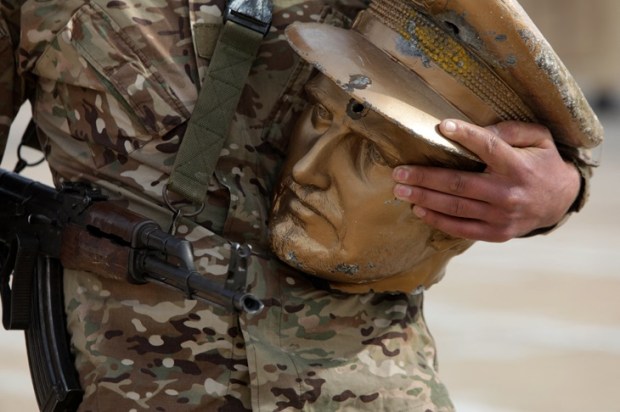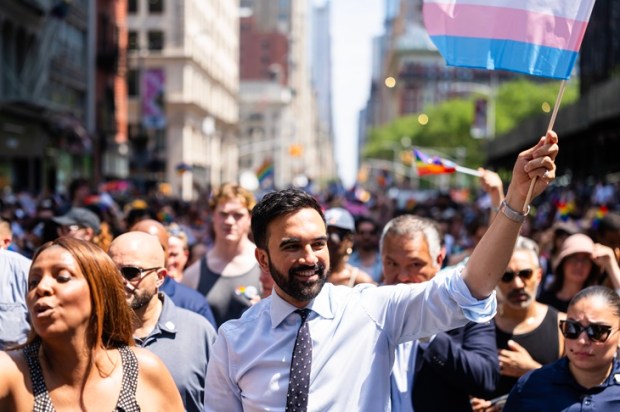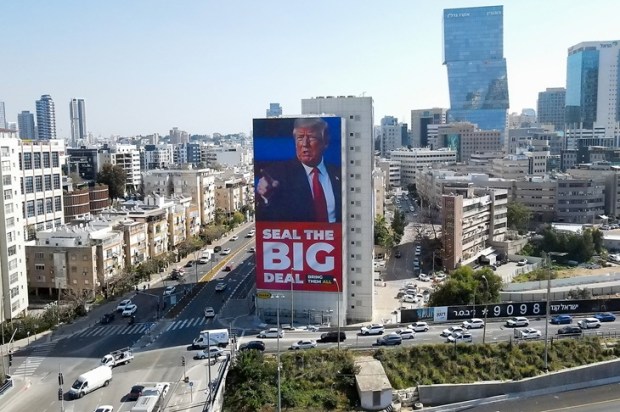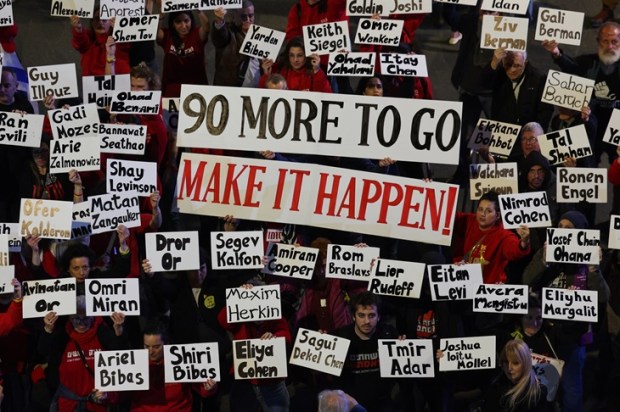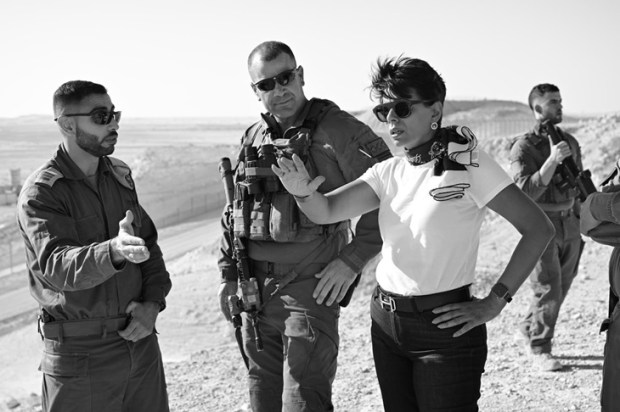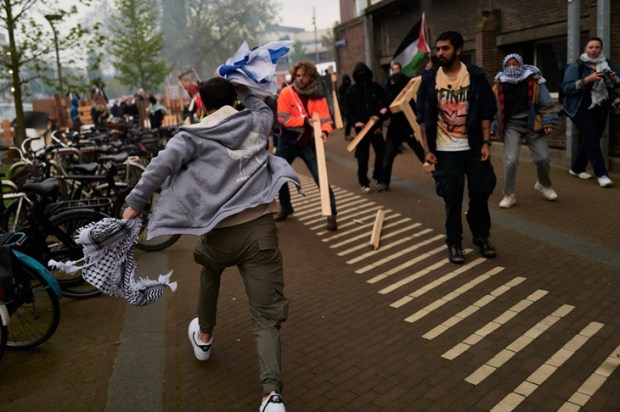Terror in the Middle East continues where the ouster of Syrian dictator Bashar al-Assad, along with the two non-Arab entities in the region – the Jewish State and the Kurdish people – will determine the outcome for Syria.
A diplomatic and strategic corridor between Israel and the Kurds has never been more essential, regardless of whether Syria can hold on as one government or devolves into an ungovernable failed state raging with sectarian warlords and carnage.
After the fall of Syria’s government, the Israeli military has taken control of the buffer zone between Syria and Israel. The Airforce has flown almost 500 aerial strikes dismantling the weapons caches, missiles – both anti-aircraft and anti-ship – and conducted ground operations to avoid chemical and other weapons falling into jihadist hands.
Centcom confirms the United States has conducted dozens of precision aerial strikes over 75 targets in central Syria to target ISIS enclaves, operatives, leaders, and camps.
Thirteen years of Syrian civil war has left the borders of Syria intact but great caverns of contested space and political vacuums exist within. These are borders without a nation, Carnegie Middle East Center reports.
Within its borders, Syria attracts intense competition for influence and control with Syria – not only between the United States and Russia, but also Iran and Turkey.
Syria today is a metaphoric shell of its former power. Long ago, Assad became no more than a hologram cipher upon which Russia had once projected power. Anticipating the fall of Assad and perhaps a new civil war, Russia has been moving its ships from Tartus and other locations at the Western Coastal maritime ports of Syria, sheltering them off coast, waiting for the storm to pass.
Russia may well lose control of these ports which have been in Russian control for over 50 years. Russia’s deep-water port of Tartus (and Russia’s only warm water access to the Mediterranean), established in 1971, may well be lost, costing Russia access to the Mediterranean and from there, central Africa.
While Israel has waged intense and simultaneous wars to crush Hamas in Gaza and Hezbollah in Lebanon – dismantling their leadership and their military brigades tactically, strategically and literally – the vacuums surrounding Israel remain intensely dangerous.
This is why Israel is already pursuing a defensive strategy from high ground. Syrians living in these borderlands with Israel – long the beneficiaries of Israel’s Operation Good Neighbour initiative – where Israeli physicians treated injured or sick Syrians during the Syrian civil war, are reportedly not opposing the Israeli incursion.
Turkey is supposedly mobilising its rebels into open aggressive offensives onto the US-backed Kurds administering Northeast Syria. Iran has lost its proxies in Hamas, Hezbollah, and thereby Lebanon. This leaves Iran with the abyss of Syria – (once its forward operating base against Israel) and its final proxies in Iraq.
While Russia, Iran, Israel, Turkey, and the United States are busy seemingly each securing their own national interests, Syria’s new leaders may be wondering whether it will truly author its own new fate as Turkey’s President Recep Tayyip Erdoğan’s hostility to PKK Kurds is driving tensions.
In the name of countering the The Kurdistan Workers’ Party or PKK (a US-designated foreign terrorist movement committed to Kurdish ultra-nationalistic separatist ambitions), Erdoğan persecutes Kurds in the name of counter-terrorism. Since Syria has fallen, Erdoğan is demonstrating that he is willing to work intensely to install an Islamist government in Syria, ensuring Kurds have no future nor role in the regime of the New Syria.
Syria fell in days under the Abu Mohammad al-Julani offensive, likely green-lit by underwriters in Ankara. Designated as a terrorist by the US with a $10 million bounty on his head, al-Julani leads the Hashem Al Tahrir Al Shams, a Sunni-Islamist Syrian rebel group with salafi-jihadist roots, backed by Turkey.
The group moved from Idlib – where it held absolute rule (having dismantled or decimated its rivals) – into the wider Northeastern Syrian corridor with a special focus on Rojave – a critical northeastern section of Syrian that has been maintained firmly under US-backed Syrian Democratic Forces’ Kurdish control, including the presence of about 900 US troops on the ground.
While global attention has been on Israel’s offensive moves, Turkey’s offensive is far more concerning.
Dave Eubank is the founder of the Free Burma Rangers charity which provides social, medical, and pastoral support to peoples in conflict and has been serving the Kurdish regions in Iraq and Syria for almost a decade.
Eubank’s team members on the Eastern Side of Syria report that the Free Syrian Army and Syrian National Army (a coalition of radical Islamists supported by Turkey including also outright factions of ISIS) are lethally attacking Kurds, Christians, and other minorities. Turkish air strikes, drone strikes, and artillery including tanks are reportedly providing jihadi groups aerial cover to kill people and destroy infrastructure.
In the city of Manbij, which has been seized by these Turkish-backed Islamists from the Kurdish forces, Eubank says his team on the ground have witnessed the slaughtering of people in the streets and hospitals. The Free Burma Rangers report their coordinator, a refugee from Idlib, was shot and killed recently.
ISIS cells sleeper cells are supporting the HTS – even flying their flag in Raqqa once the capital of the ISIS caliphate – but since their defeat under the rule of the Kurds, Arabs, and Christians and currently home to the Yazidis, Christians, and other minorities. Now some of these ISIS cells are attacking the Kurdish administered police, military, and security forces.
If this Turkish-led offensive goes unchallenged, the world will again miss a chance to create far-ranging stability. As Iranian influence was clearly crumbling, Turkey’s focus was accelerated and intensified by the September assassination by Israeli airstrike of Hassan Nasrallah, leader of Hezbollah in Lebanon and hundreds of Hezbollah commanders.
In the wake of the November 27 HTS offensive, hundreds of thousands of internally displaced refugees are fleeing to Northeast Syria, threatening to intensify an already critical humanitarian crisis.
Erdoğan may fear this Northeast corridor to become contiguous with neighbouring Iraqi Kurdistan, which might lead to more autonomy and power for the Kurds. More than 25 million Kurds live in Turkey and could also agitate for self-rule.
There Kurds protect the remaining Kurdish minorities in Syria, as well as Christians,Yazidis, and others, while also securing the notorious Al Hol camp home with 80,000 detainees. Many of the detainees are children of ISIS-forced marriages and self-declared ISIS supporters keen to resurrect their caliphate.
Though Turkey and the United States recognise the PKK to be a terrorist group, Erdoğan labels all Kurds as either PKK or pro-PKK and uses this to imprison and disappear Kurdish leaders, council members, mayors and would-be parliamentarians into custody in Turkish prisons.
At this fraught moment, it is imperative the United States assist the Kurds both in Iraq and in the Northeast Syria area, with both special forces and diplomatic muscle.
GOP Senator Lindsay Graham has already indicated he is ready to prepare legislation that might sanction Turkey. At the same time, Israel more than ever needs greater military and diplomatic support from the United States [AQ1].
Both the Jewish State in Israel and the Kurdish governate must be supported to the utmost at this fragile time. The world awaits the outcome.
Qanta Ahmed MD, is a Senior Fellow of the Independent Women’s Forum, author and Life Member, Council on Foreign Relations. @MissDiagnosis
[AQ1] In 2019 when the United States pulled back from Rojave, ISIS prisoners were released by Turkey as Turkey attacked Rojave and started making fake checkpoints executing everyone who went through the check points.



